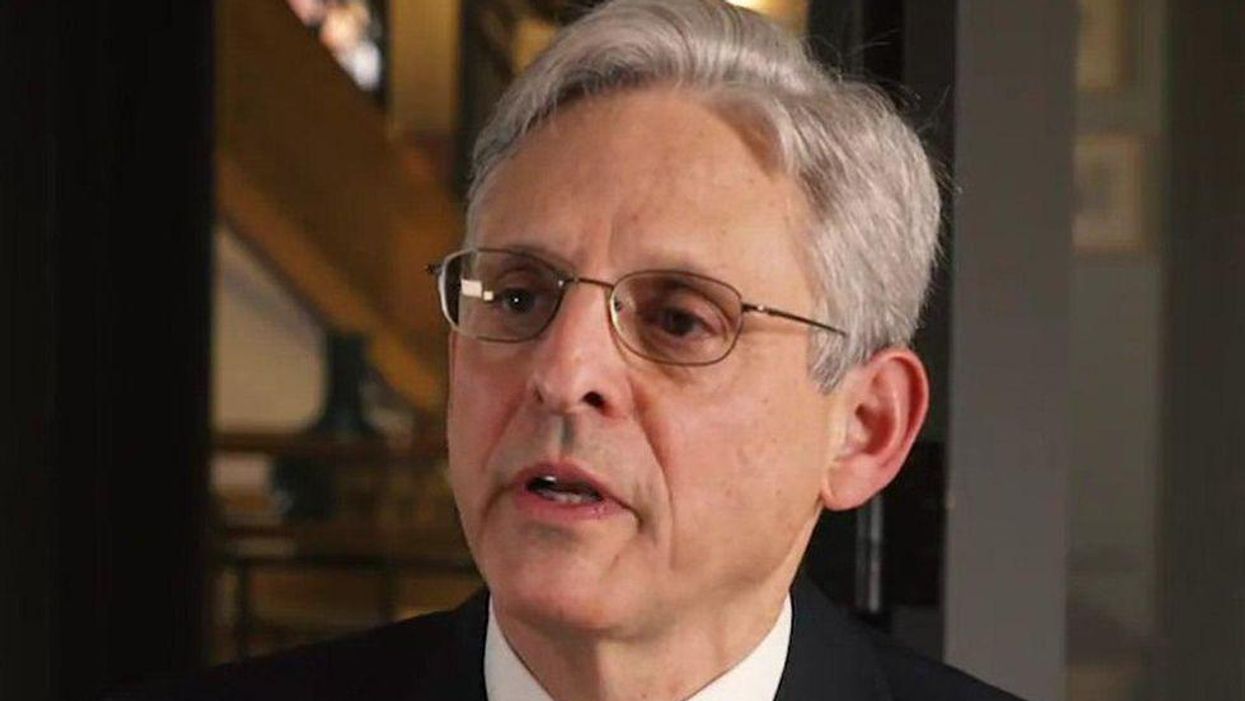
Attorney General Merrick Garland
Reprinted with permission from AlterNet
Steve Bannon, a close ally of former President Donald Trump, was indicted Friday afternoon, the Justice Department announced.
A federal grand jury returned the indictment after Bannon refused to comply with a subpoena for testimony by the House Select Committee investigating the January 6 attack on Congress.
"Since my first day in office, I have promised Justice Department employees that together we would show the American people by word and deed that the department adheres to the rule of law, follows the facts and the law and pursues equal justice under the law," Attorney General Merrick Garland said in a statement. "Today's charges reflect the department's steadfast commitment to these principles."
The indictment included two charges, one for refusing to appear before Congress and another for refusing to turn over documents.
The department said an arraignment has not been scheduled yet for Bannon.
"As detailed in the indictment, on Sept. 23, 2021, the Select Committee issued a subpoena to Mr. Bannon," U.S. Attorney Matthew Graves said. "The subpoena required him to appear and produce documents to the Select Committee, and to appear for a deposition before the Select Committee. According to the indictment, Mr. Bannon refused to appear to give testimony as required by subpoena and refused to produce documents in compliance with a subpoena."
Bannon has claimed that he doesn't need to testify because former President Donald Trump's executive privilege protects him from congressional subpoenas. However, many legal analysts have argued that this claim is vacuous on multiple grounds. As a former president, Trump's claims of executive privilege are tenous at best.
And they're particularly weak as they would apply to Bannon, who wasn't an executive branch employee at the time in question. And even if the concept of executive privilege were stretched beyond its limits, Bannon would still be obligated to appear before Congress and formally assert the privilege in the specific instances when it applies.
Bannon was previously indicted by the Justice Department for his role in the fundraising effort "We Build the Wall," which purported to collect private donations to construct the border wall that Trump had campaigned for president on. The Justice Department contends that the group defrauded donors by misusing their funds. However, as one of his last acts as president, Trump pardoned Bannon for his role in the alleged scheme before the charges could even be brought to trial.
It's not only Bannon who has resisted the committee's investigation. Mark Meadows, Trump's former chief of staff, has also refused to comply with a subpoena for testimony. It's possible he has a stronger legal claim to refuse to testify, but Bannon's indictment will likely put more pressure on him to comply with the committee.
The department explained in a press release:
In its subpoena, the Select Committee said it had reason to believe that Bannon had information relevant to understanding events related to Jan. 6. Bannon, formerly a Chief Strategist and Counselor to the President, has been a private citizen since departing the White House in 2017.
Each count of contempt of Congress carries a minimum of 30 days and a maximum of one year in jail, as well as a fine of $100 to $1,000. A federal district court judge will determine any sentence after considering the U.S. Sentencing Guidelines and other statutory factors.
- January 6 Committee Will Use 'Criminal Contempt' To Enforce ... ›
- New Subpoenas Fly To Trump Aides -- And Indictments May Follow ... ›
- Federal Grand Jury Indicts Bannon For Contempt Of Congress ... ›
- Federal Court Restricts Bannon's Travel And Seizes His Passport - National Memo ›
- Bannon Threatens Biden Over Capitol Riot Panel Contempt Charges - National Memo ›
- Prosecutors Forcefully Reject Bannon's Attempt To Spin His Contempt Case - National Memo ›
- Renewing 'Privilege' Claims, Meadows Defies Select Committee Subpoena - National Memo ›
- Here's How Merrick Garland Can Criminally Charge Trump - National Memo ›
- Former Trump Advisor Reveals Shocking Details About Steve Bannon's Role in Election Coup Plot - National Memo ›
- Steve Bannon Indicted For Contempt Of Congress ›
- Steve Bannon, three others charged with fraud in border wall ... ›
- Why the Justice Department Is Taking So Long to Indict Steve Bannon ›
- Steve Bannon indicted by federal grand jury for contempt of ... ›
- Trump strategist Steve Bannon indicted on contempt charges in Jan ... ›
- Former Trump adviser Steve Bannon indicted by federal grand jury ... ›
- Stephen K. Bannon Indicted for Contempt of Congress | OPA ... ›








